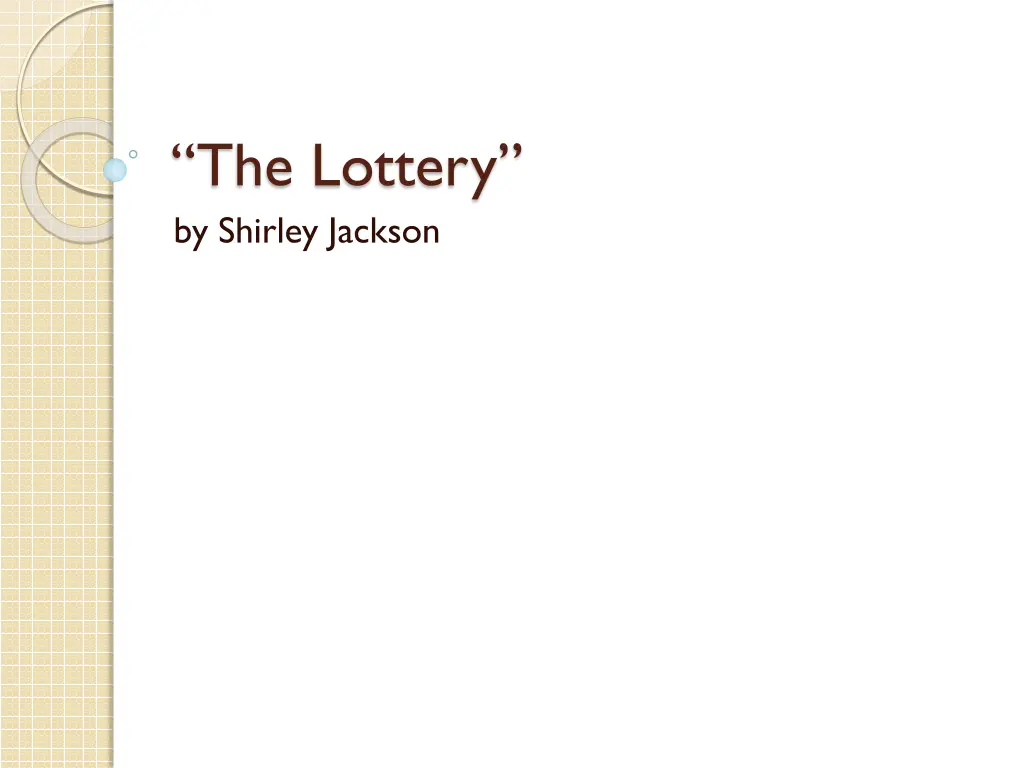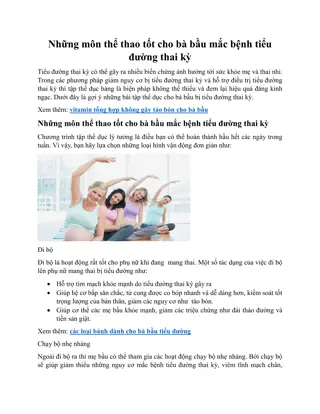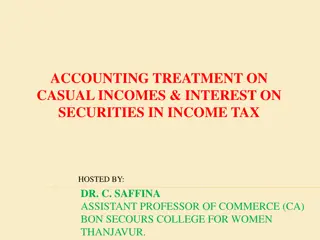
Interpreting Shirley Jackson's 'The Lottery' and Themes of Evil
Dive into an analysis of Shirley Jackson's 'The Lottery' examining elements like plot, characterization, setting, and themes of evil. Explore how the story reflects on human nature and the presence of evil in unexpected places, offering a thought-provoking perspective on society.
Download Presentation

Please find below an Image/Link to download the presentation.
The content on the website is provided AS IS for your information and personal use only. It may not be sold, licensed, or shared on other websites without obtaining consent from the author. If you encounter any issues during the download, it is possible that the publisher has removed the file from their server.
You are allowed to download the files provided on this website for personal or commercial use, subject to the condition that they are used lawfully. All files are the property of their respective owners.
The content on the website is provided AS IS for your information and personal use only. It may not be sold, licensed, or shared on other websites without obtaining consent from the author.
E N D
Presentation Transcript
The Lottery by Shirley Jackson
The Nature of Proof in the Interpretation of Poetry by Laurence Perrine The criteria for judging any interpretation: 1. A correct interpretation must be able to account for any detail. 2. A correct interpretation relies on the fewest assumptions not grounded in the text itself.
Elements of Fiction Plot: Who are the protagonist(s) and who are the antagonist(s) of the story? What is the conflict? Do the protagonist and antagonist allegorically represent any bigger forces at play? If yes, what could they be? How does Jackson use foreshadowing? What is the irony of the story? Characterization: How are the villagers characterized? Consider their appearance, their speech, and their actions toward one another. What do you notice about the names of the villagers? How does the characterization contribute to our understanding of evil?
Elements of Fiction Setting: What do we know about the setting of the lottery? What do we not know and why does the author withhold some of the specifics about the setting? What are the important objects and how are they symbolic? Point of view: Determine the point of view in the story. How is it effective? What information does the point of view reveal and what does it withhold from the readers? How does the point of view establish the tone of the story? What is the tone? (Find three adjectives that capture the tone of the story.) How is the tone effective and how does it contribute to the meaning of the story? Is there any hope in the story? What does the presence of absence of hope add to the meaning of the story?
Subject/Theme Subject: What is the story about? In your group, originate abstract nouns that reflect the subject of the story. Theme: What is the author s claim about the subject? Write a complete sentence to answer the question above.
Discussion questions What is the story about? What does the story reveal about humans and human nature?
Theme Theme: What is the author s claim about evil? Write a complete sentence to answer the question above.
Claims Evil is present everywhere, even in the most idyllic places. Evil goes through times and generations and remains a contemporary concept. Even the nicest people are capable of evil. We use evil as a necessary condition for maintaining civilization. Evil is acceptable as long as it does not affect us personally. Self-preservation from evil causes us to impose evil on others. Evil has become a norm and a part of our daily routine; it s no big deal. At times we are unable to provide a clear rationale for the necessity of evil. Evil is a tradition passed from generation to generation.
R Writing prompt What does the short story The Lottery by Shirley Jackson suggest about evil as part of human nature and human society?
AP Writing prompt What does the short story The Lottery by Shirley Jackson suggest about evil as part of human nature and human society? How do all elements of fiction (characterization, point of view, plot, and setting) contribute to the development of meaning of the story?






















